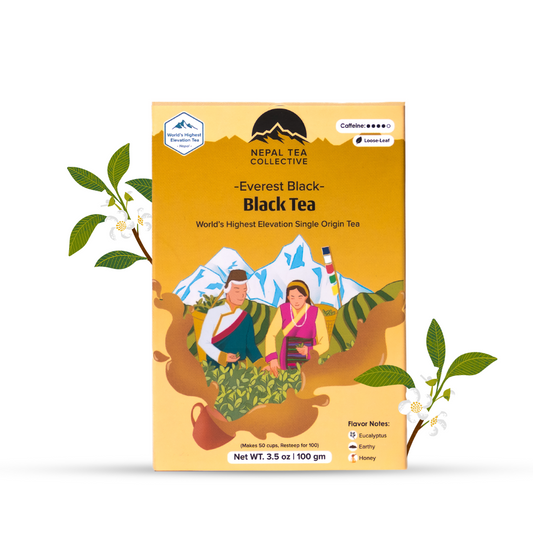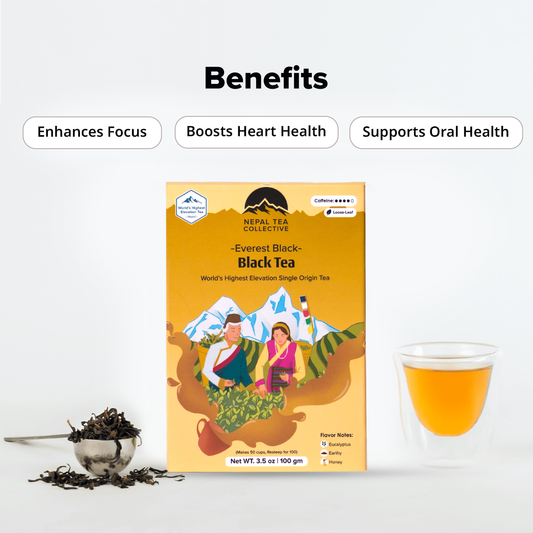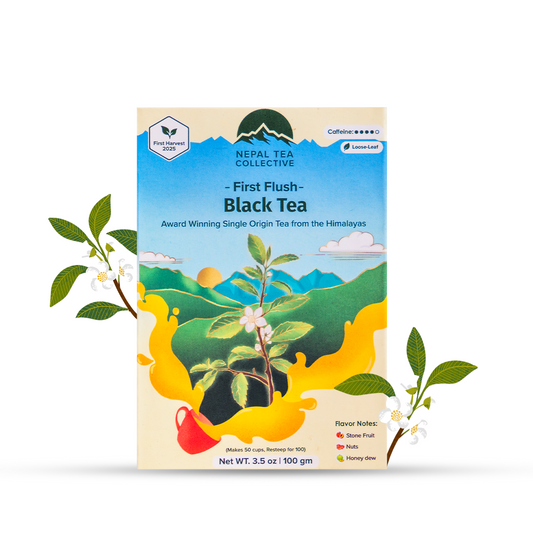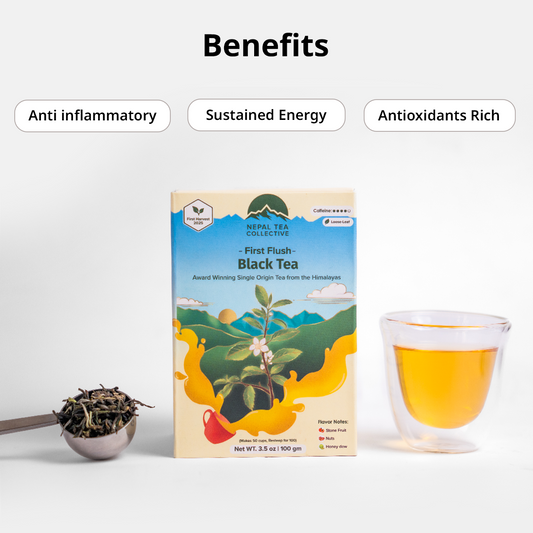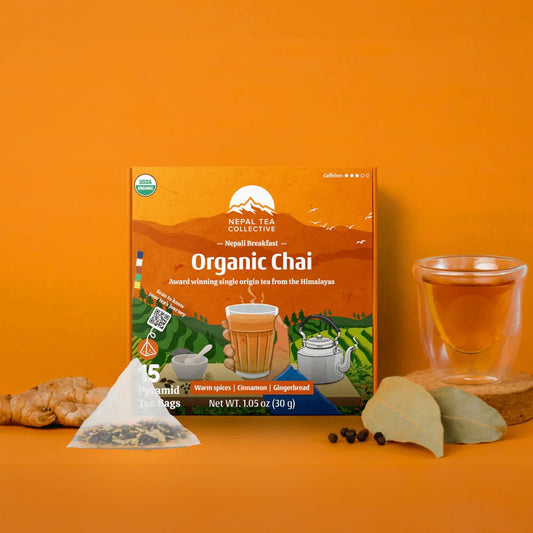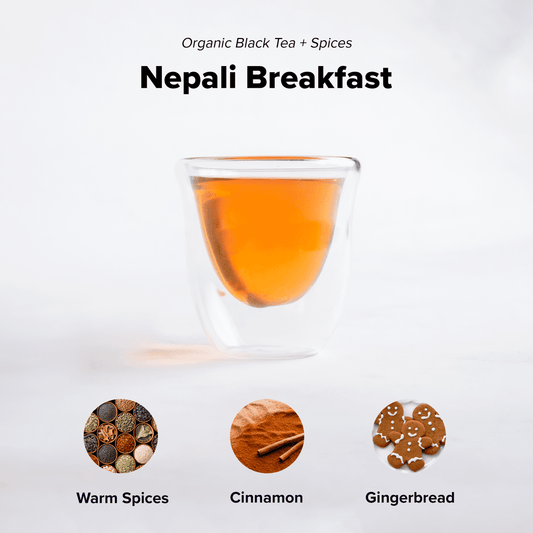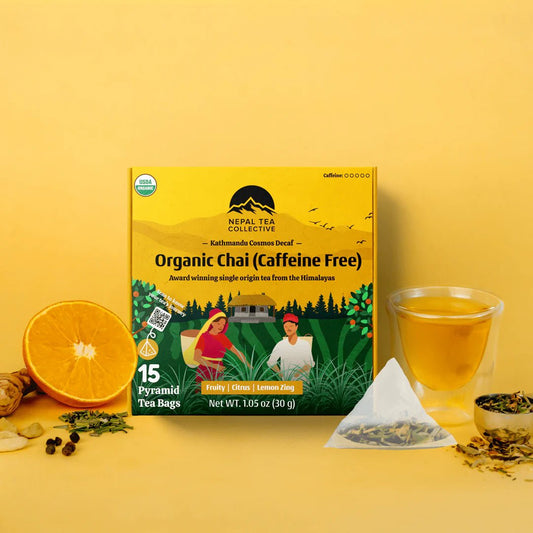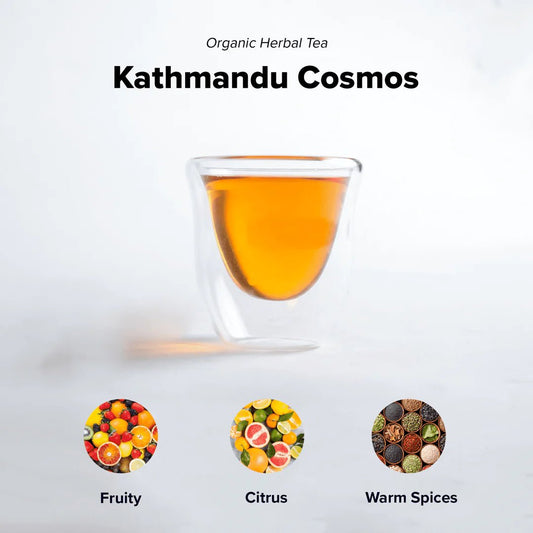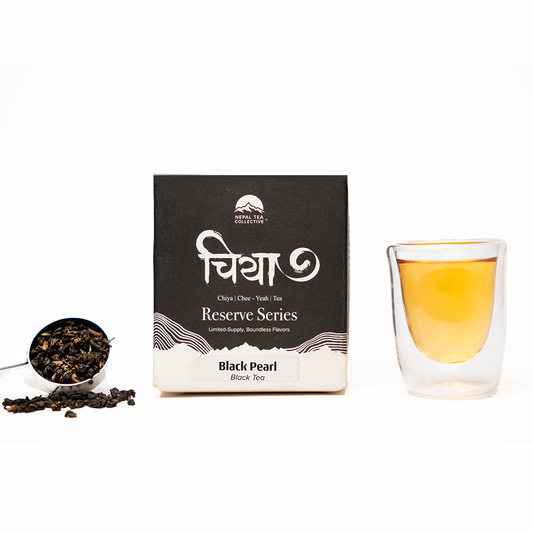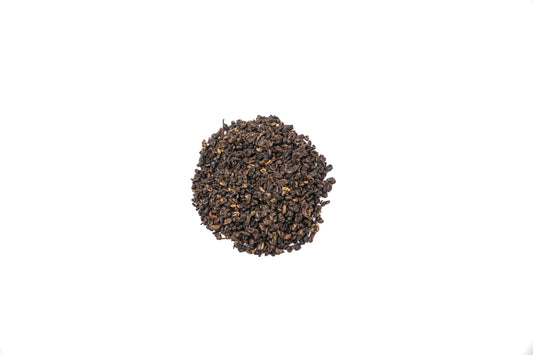-
Regular priceFrom $ 17.50Regular price
$ 25.00Sale priceFrom $ 17.50Unit priceperEverest Black (Top of the World Tea)
-
Regular priceFrom $ 14.00Regular price
$ 0.00Sale priceFrom $ 14.00Unit priceperKumari Gold
-
Regular priceFrom $ 10.80Regular price
$ 18.00Sale priceFrom $ 10.80Unit priceperNepali Breakfast
-
Regular priceFrom $ 18.00Regular price
$ 18.00Sale priceFrom $ 18.00Unit priceperHimalayan Sunrise (Kanchanjangha Noir)
-
Regular priceFrom $ 11.20Regular price
$ 14.00Sale priceFrom $ 11.20Unit priceperKathmandu Cosmos
-
Regular price$ 100.00Regular price
$ 100.00Sale price$ 100.00 Save $ 0.00 (0%)Unit priceperRose Label Gold- 2025 Harvest
-
Regular price$ 30.00Regular price
$ 30.00Sale price$ 30.00 Save $ 0.00 (0%)Unit priceperFirst Flush Black Tea
-
Regular price$ 14.99Regular price
$ 14.99Sale price$ 14.99 Save $ 0.00 (0%)Unit priceperNepali Breakfast (Classic Chai) - 15 Pyramid Tea Bags
-
Regular price$ 14.99Regular price
$ 14.99Sale price$ 14.99 Save $ 0.00 (0%)Unit priceperKathmandu Cosmos (Unique Herbal Chai)-15 Pyramid Tea Bags
-
Regular price$ 12.00Regular price
$ 12.00Sale price$ 12.00 Save $ 0.00 (0%)Unit priceperBlack Pearl
-
Regular price$ 14.99Regular price
$ 14.99Sale price$ 14.99 Save $ 0.00 (0%)Unit priceperHimalayan Sunrise (Special Black Tea) - 15 Pyramid Tea Bags
-
Regular price$ 12.00Regular price
$ 12.00Sale price$ 12.00 Save $ 0.00 (0%)Unit priceperSecond Flush Black
-
Regular price$ 18.00Regular priceSale price$ 18.00 Save $ -18.00 (%)Unit priceper
Timur Gold
Reviews

“Excellent dark tea”
I see why they describe it as having "chocolate notes." It's a black tea that has a bit of a dark chocolate taste, while somehow not being bitter or astringent at all. I also think it has kind of a roasted flavor. I'm a fan. Would have this again.

“I didn't know black tea could taste this good”
Simply put, the best black tea I've ever had. The flavor is rich and smooth, very malty, not acidic or bitter at all. Perfectly enjoyable on its own, but it also takes very well to a little milk and sugar, if that's what you like. This tea will really open your mind to the kinds of depth and flavor good tea can have.

“Everest Black Tea”
Just like Mount Everest, Nepal Tea Collective’s Everest Black Tea is at the “Summit” of black teas I have tasted!
Why Choose Nepal Tea Collective’s Organic Black Tea?
-

100% Organic & Sustainably Grown
No pesticides, no chemicals, just pure teas.
-

Naturally Energizing
Offers mild sustained energy without the jitters.
-

Packed with Antioxidants
Supports physical and mental well-being.
-

Ethically Sourced
Supporting Nepalese tea farmers and fair trade practices.
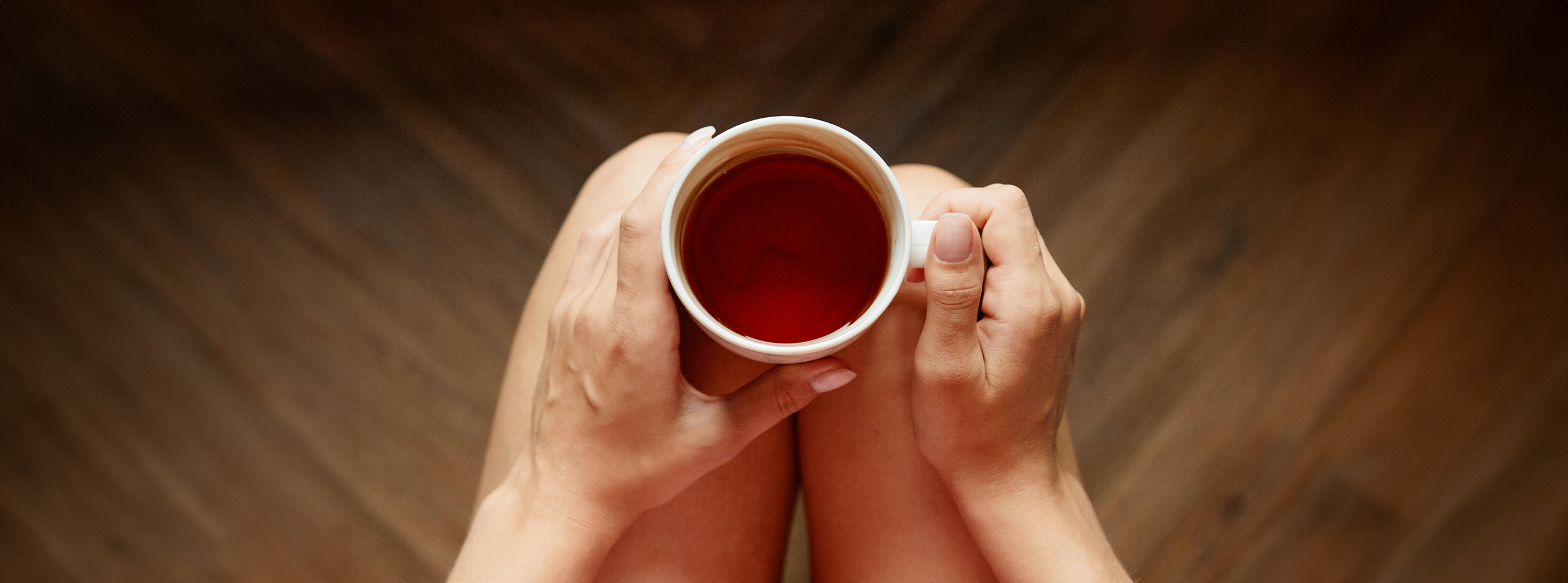
Introduction to Nepali Organic Black Tea
Organic black tea is known for its bold flavors and rich aroma. Made from the Camellia Sinensis plant, it undergoes oxidation, giving it its dark color and robust taste. It is grown without pesticides or synthetic fertilizers, organic black tea offers a cleaner, more natural cup. One can enjoy it plain or with milk and sugar for a perfect moment of relaxation.
Introduction to Nepali Organic Black Tea
Organic black tea is known for its bold flavors and rich aroma. Made from the Camellia Sinensis plant, it undergoes oxidation, giving it its dark color and robust taste. It is grown without pesticides or synthetic fertilizers, organic black tea offers a cleaner, more natural cup. One can enjoy it plain or with milk and sugar for a perfect moment of relaxation.
Why is Nepali Black Tea Unique?
Grown in Nepal's eastern tea mountains, Nepali organic black teas thrive at high elevations with mineral-rich terroir. This environment, combined with the seasonal harvest, contributes to their bright and floral flavor profile, setting them apart from mainstream black teas.
Nepali black teas, such as Kumari Gold, Everest Black, and Himalayan Sunrise are distinguished by their unique production methods. Kumari Gold, for instance, uses only the top leaf and bud, resulting in a more delicate flavor, while careful control of oxidation and rolling enhances its aroma.
How many Types of Organic Black Tea are There?
There are numerous types of organic black tea, with hundreds of varieties grown around the world. Some of the most popular types include Assam Black Tea, Nepali Black Tea, Darjeeling Black Tea, Ceylon Black Tea, Keemun Black Tea, Lapsang Souchong, and more.
Read more: An Expert's Guide to the Different Types of Black Tea
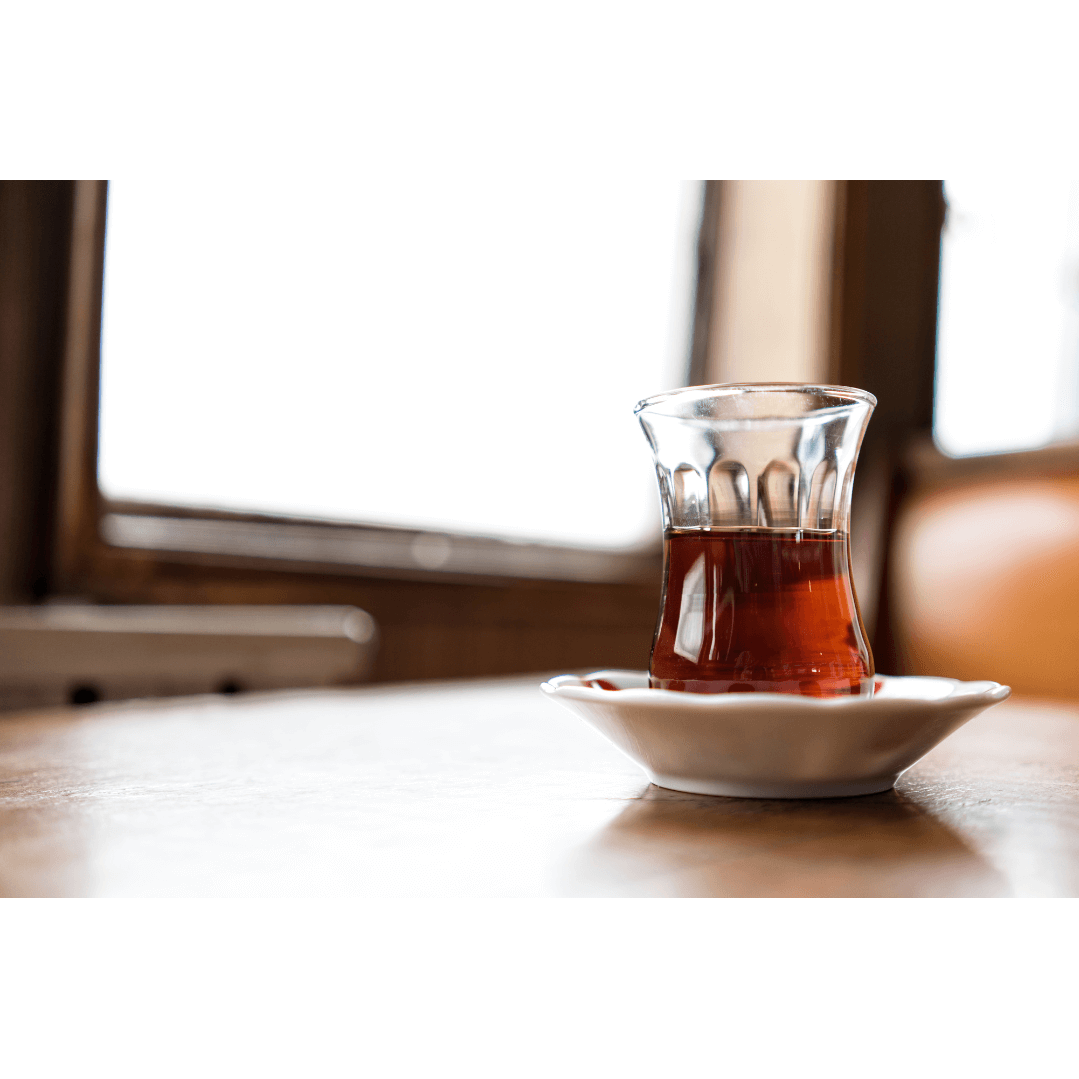
Organic Black Tea Benefits on Health
Black tea is a powerhouse of antioxidants, including theaflavins and flavonoids, which support heart health, improve cholesterol levels, and enhance circulation. Its natural dose of black tea caffeine provides a steady energy boost without the jitters, while L-theanine promotes focus and mental clarity.
Drinking black tea for metabolism may aid in fat oxidation, supporting weight management and digestion. Plus, its natural polyphenols contribute to a healthier gut and stronger immunity. With its bold flavor and scientifically backed benefits, black tea is the ultimate brew for wellness, energy, and vitality.
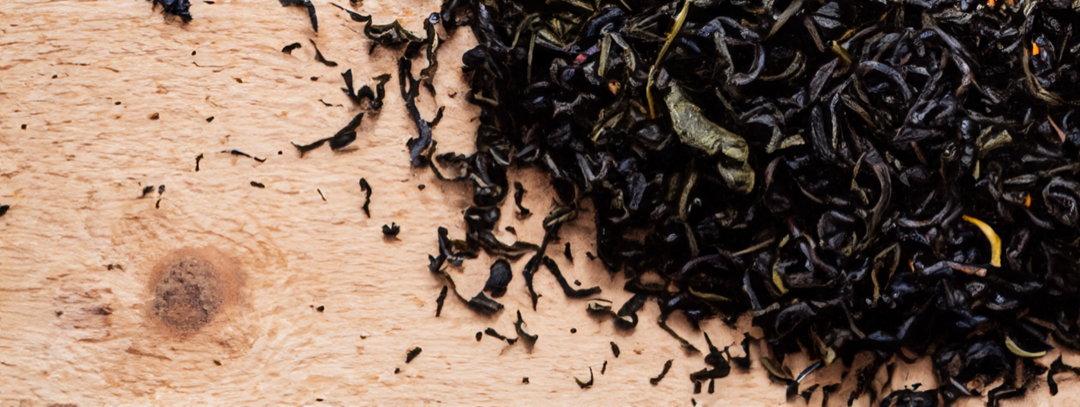
How to brew Black Tea?
For a strong and bold flavor: Steep 2 grams of loose tea leaves in 8 oz of warm water (210°F) for 5 minutes.
For a lighter brew: Reduce steeping time to 3 minutes.
Want to get the best flavors? Try experimenting with different steeping times and temperatures!

FAQs About Black Teas
Does Black Tea have more Caffeine than Green and White Tea?
Does Black Tea have more Caffeine than Green and White Tea?
Yes, black tea generally contains more caffeine than green and white tea. Black tea averages 47 mg per 8 oz cup, compared to 28 mg in green tea and 25 mg in white tea. The higher caffeine in black tea results from the full oxidation process that the leaves go through. However, caffeine levels can vary based on tea quality, growing conditions, brewing methods, and steeping time.
What is the Difference between Darjeeling Tea and Nepali Black Tea?
What is the Difference between Darjeeling Tea and Nepali Black Tea?
Darjeeling tea is known for its distinctive muscatel flavor and briskness, while Nepali black tea offers a more delicate, floral, and smooth taste profile. The major difference between the two teas is that while Darjeeling follows orthodox processing methods, Nepali teas mostly use traditional hand-plucking and hand-rolling techniques. Darjeeling is grown in the high-altitude regions of West Bengal, India, while Nepali teas come from the Himalayan foothills of Nepal.
For a more in-depth read, you can check out Nepal Tea and Darjeeling Tea.
How Many Cups of Black Tea Can I Drink Daily?
How Many Cups of Black Tea Can I Drink Daily?
Moderation is key! Up to 3–5 cups a day is generally safe, providing antioxidants and steady energy while keeping caffeine intake balanced.
Does Black Tea Have Calories?
Does Black Tea Have Calories?
A plain 8 oz cup of black tea has less than 5 calories, making it a virtually calorie-free drink, unless you add milk or sugar. Unlike green tea, it contains minimal EGCG (Epigallocatechin gallate); a type of Catechin.
Can Black Tea Replace Coffee for Caffeine?
Can Black Tea Replace Coffee for Caffeine?
Yes! Black tea caffeine is about half that of coffee (47mg vs. 98mg per 8 oz cup), giving you a sustained energy boost without the jitters.
